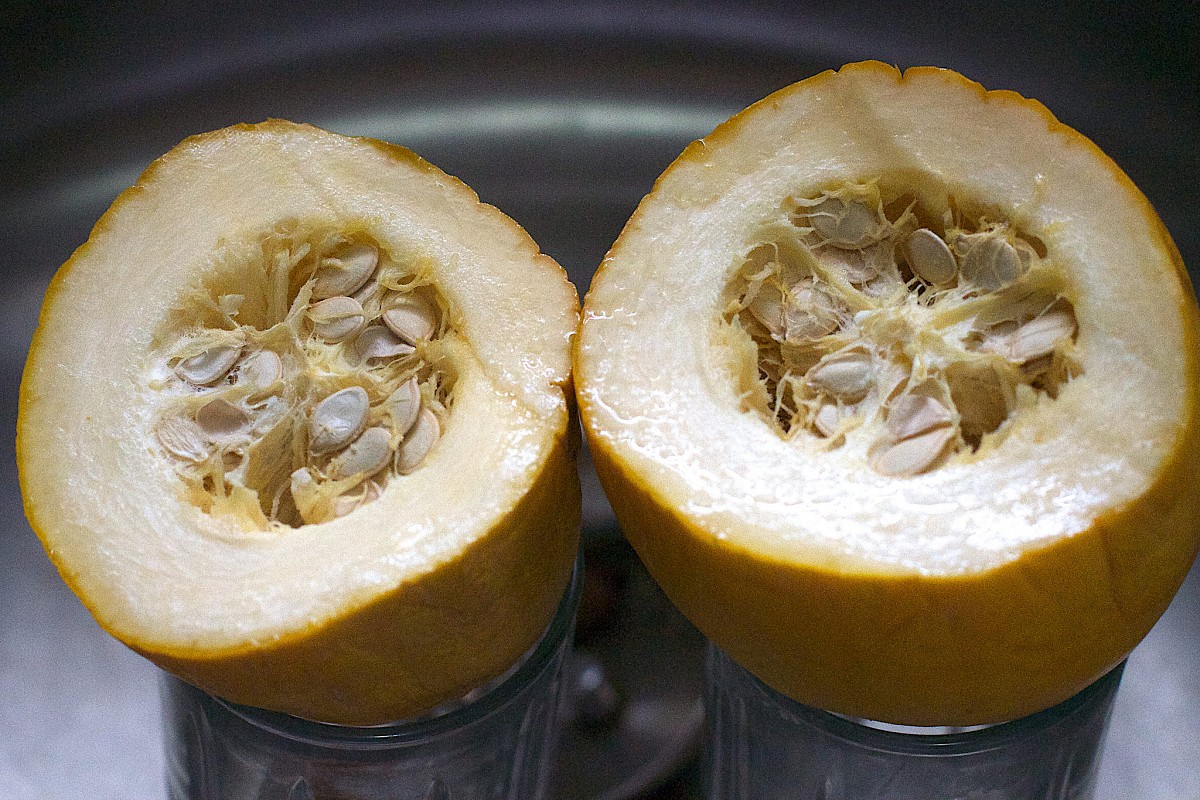Growing a Garden from the Grocery Store
If you've ever kept a compost pile, then most likely you've seen some squash or tomatoes growing out of it at some point and wondered, “How did that pop up there? I didn't plant it.” Well, the nature of seeds is to grow, and many of the fruits and vegetables we buy from the store have viable seeds which are just waiting to sprout. The compost pile usually presents ideal conditions. As does your garden (hint hint).
So why not plant your favorite veggies from the grocery store? After all, there's no magical distinction between, for instance, the beans in the bulk bins at your local natural foods store and the beans sold in seed packs. Here's what you need to know.
Use Non-Hybridized Seed Varieties
Not all grocery store produce is created equal. There are some seeds which will not bear fruit, but many that will. As with all seed saving, it's important to use non-hybridized varieties. Hybridized means the seeds were produced in such a way that their first generation will bear fruit, but if you save seeds from that generation (for example, from a hybridized tomato at the grocery store) and plant them, they will not produce good produce.
How do you avoid hybrids? Anything labeled “heirloom” is definitely not a hybrid. But there are many seeds, fruits, and vegetables which are not labeled “heirloom” but are in fact not hybrids and will grow robustly.
Which Seeds Will Work
You can save seeds from heirloom (open-pollinated) tomatoes, peppers, melons, and squash. Now, you probably wouldn't want to waste (that is, not eat) any part of a $6 tomato. But if one happens to go bad, that's great! Tomato seeds need to be fermented (which means they need to rot) in order to become viable. You might think fermenting is pretty gross. However some seeds do require it for successful germination.
Most legumes, pulses and grains (especially quinoa and amaranth) will grow marvelously in the garden. Intrigued by the color pattern on Jacob's Cattle beans? Take one or two from the bag and plant them! Sow dry pulses about an inch deep and then water. Quinoa and amaranth generally do well sprinkled over soil or lightly covered with soil, and watered.
Grow Your Own Spices
Common spices like dill seed, mustard seed, caraway, and nigella sativa (black cumin) may grow as well, if you want to try them. Obviously, use whole seeds, not ones that are crushed or ground. The main limiting factor is age — how long have your spices been sitting on the shelf? Perform this simple test to see whether spice seeds (or any other varieties) are still viable: sprinkle them in a bowl of water. As a general rule, floaters are no longer viable; sinkers are still good.
Plant Fruit Trees from Seed? A Mixed Bag
In the world of tree fruits, you'd usually just discard the seeds, so it's tempting to try planting them. However, it can be a mixed bag, as many fruits, like apples, will not grow true (which means if you plant a Pippin apple seed, it will probably grow a crab apple. If you plant a Red Delicious seed, it will probably grow a crab apple. You get the idea.). Growing a fruit tree from seed could be an edifying experience, but if you want good fruit-bearing trees it's better to find a reputable landscaper or nursery to buy high quality young stock.
Which Seeds Might Not Work?
The reason why only heirloom stock of some types of fruits or veggies will work is that the hybridized varieties do not grow true. You're at the mercy of the seed companies for those seeds. Examples of commonly hybridized produce include squash, melons, and corn.
“Sprouted” seeds, nuts, and grains are increasingly popular because of their health benefits and are becoming more available in bulk grocery sections. Seeds marked as “sprouted” will most likely not grow because the sprouting process starts the growth process but then cuts it off before the plant actually sprouts. Nipped in the bud, as they say.
Needless to say, any type of roasted or pasteurized seeds or nuts will not sprout because they are already dead.
For excellent information on saving and planting all kinds of seeds, refer to Suzanne Ashworth's guide Seed to Seed.
Beyond Seeds
Of course, you don't have to limit yourself to seeds. Pretty much every tuber you can buy will grow in your garden. Some that I've enjoyed are horseradish and Jerusalem artichoke (sunchoke). Others that work are ginger, potatoes, and yams. Especially when these tubers have been sitting around for a while, have become shriveled and started sprouting roots or stems, why not plant them and maximize your returns?
Garlic is another vegetable that will take well to the garden. Each head of garlic is composed of ten or more individual cloves, each of which can be planted to grow a whole new head of garlic. Just remember that garlic is usually planted outdoors in the late fall when temperatures are going down, for a summer harvest.
Looking for a Pro? Call us (866) 441-6648

Landscaping Average Costs
Landscapers Experiences

Successful Removal Of A Very Large Tree

Don’t Be A Goober – Hire Qualified Pros For Safe Tree Removal




